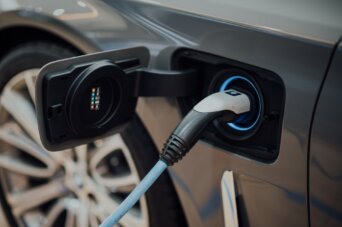- About
- Topics
- Picks
- Audio
- Story
- In-Depth
- Opinion
- News
- Donate
- Signup for our newsletterOur Editors' Best Picks.Send
Read, Debate: Engage.
| topic: | Divestment |
|---|---|
| located: | India |
| editor: | Bindu Gopal Rao |
A report released by Grand View Research has stated that the Indian electric vehicle market is expected to grow at a compound annual growth rate of 94.4 percent from 2021 to 2030. This is a clear indication of the scale of development in the near future for the e-vehicle market.
For an increasing population, whose demand for vehicles is growing exponentially while conventional energy resources are getting expensive, EVs are the way forward. Coupled with the fact that India imports close to 80 percent of its crude oil requirements, the government is also giving sops to EV manufacturers. The government’s public think tank, NITI Aayog, aims to achieve EV sales penetration of 70 percent for all commercial cars, 30 percent for private cars, 40 percent for buses and 80 percent for two and three-wheelers by 2030. This is in line with the goal to achieve net zero carbon emission by 2070.
In fact, the NITI Aayog has also launched E-Amrit, a portal for EVs that aims to be a one-stop-shop for all aspects of EVs, including myths to adoption, investments, policies and opportunities. The government has launched Faster Adoption & Manufacturing of (Hybrid &) Electric Vehicles (FAME) India in 2015 to promote growth and early adoption of hybrid and electric vehicles with a budget outlay of $1.3 billion to support 1 million e-two-wheelers, 0.5 million e-three-wheelers, 55,000 e-passenger vehicles and 7,000 e-buses. The government extended the scheme until 2024.
The Production Linked Incentive for Advanced Chemistry Cell Battery Storage scheme, with an outlay of $2.45 billion, will be disbursed to beneficiaries over five years once the manufacturing facility is set up. A draft battery swapping policy valid until 31 March, 2025, tax exemption of up to $1,960 when purchasing an EV (2W or 4W) on loan, reduction of customs duty on nickel ore (key component of lithium-ion battery) from 5 percent to 0 percent and state-wise reduction of road tax are part of the sops on offer.
Automobile companies like Kia, Maruti Suzuki, Tata Motors, Hyundai, MG Motors and Mahindra & Mahindra are working on launching vehicles in the EV segment. Ola Electric has raised $200 million from investors and many delivery-based platforms are promising to shift to EVs. The road ahead is not easy as the shift from internal combustion engine vehicles to EVs requires expansion of infrastructure facilities, including charging stations.
eVolt India, India's largest electric vehicle (EV) charging infrastructure start-up, is working to boost adoption of electric vehicles by making charging accessible and ending range anxiety. eVolt uses a well-connected smart charging network that is built via strategic partnerships with public and private property owners to do this. EV adoption can help the country save one giga-tonne of carbon dioxide emissions by 2030. That certainly means that the future is electric.
Photo by Chuttersnap

